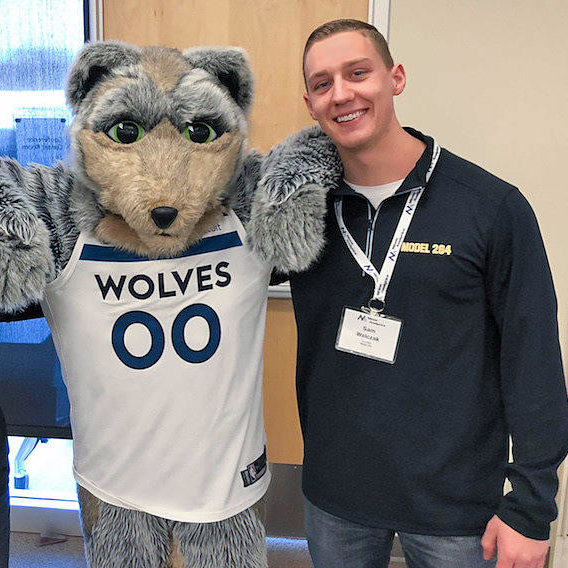For grad student, big win in NFL Big Data Bowl

When a statistical model you built correctly picks the 26th-ranked team to win an NCAA men’s basketball tournament, how can you top that?
If your name is Sam Walczak, you go on to win the grand prize in the 2020-21 NFL Big Data Bowl, a test of contestants’ analytical prowess with football statistics. The victory by Walczak, a data science grad student, and three friends was announced March 18, 2021. The team took home $15,000 for making the finals, plus $10,000 after their victory.
This year’s players were tasked with evaluating actual NFL defensive strategies deployed against the offense’s passing game and identifying "unique and [effective] approaches to measuring defensive performance on these plays,” according to the tournament website. They worked with NFL player tracking, called Next Gen Stats, which captures real time location data, speed, and acceleration for every player in every play. It works via radio-frequency ID tags placed, for example, on players’ shoulder pads, on officials, and even in the ball. Sensors around the stadium pick up the signals and track individual movements within inches.
Walczak’s team found a better way to evaluate pass coverage by spotting whether the defensive team was playing “man” or “zone” defense and more accurately identifying which receiver each defender was assigned to cover.
“Getting a little bit of recognition for our work feels pretty fulfilling, just because we've devoted so much unpaid time and energy into it,” says Walczak, who estimates the Big Data Bowl saw “a couple hundred submissions … all really impressive.”
With a little help from the U
Walczak predicted the University of Connecticut Huskies’ long-shot win in the men’s March Madness tourney in 2014, when he was an undergrad in math and statistics at St. Olaf College in Northfield, Minnesota. Today he works full-time as a reinsurance broker and catastrophe analyst. He has always wanted to keep learning, which brought him to the data science master’s program.
“In terms of the data science programs that I looked at, the U of M was far and away the best in terms of course offerings and the broad options for classes to take and topics to study,” he says. A favorite class, Statistical Computing, used computer simulations to determine whether scientists’ data was reliable. Walczak and his team used some of those methods to test their NFL data.
And while he has no immediate plans to pursue a career in sports analytics, Walczak does pursue one hobby: predicting NCAA basketball games.